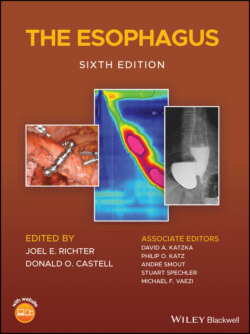Читать книгу The Esophagus - Группа авторов - Страница 104
Psychologic approaches
ОглавлениеPsychologic and biofeedback therapies have historically been an important part of therapy for rumination syndrome based on its putative association with eating disorders and depression. In fact, the data associating these factors to rumination are few. There are patient studies associating eating disorders with rumination [15–17]. For depression, one such study found that among patients with rumination syndrome, an increase in hypochondriasis and depression scores on the Minnesota Multiphasic Personality Inventory was recorded in 9 of 12 patients [18]. A study associating rectal evacuation disorder with rumination syndrome in 57 patients demonstrated that 93% of patients had a psychiatric comorbidity [19]. Whether this was related to rumination, the evacuation disorder, or both is unclear. As a result of these and similar reports, therapies such as stress reduction, cognitive therapy, and biofeedback have been used with variable documentation of their effectiveness in patients without additional underlying contributors to their disease. This is in part because they are typically used in conjunction with diaphragmatic breathing. Similarly, neuromodulators do not appear to have a primary role in treating rumination syndrome unless used for psychologic comorbidities.
